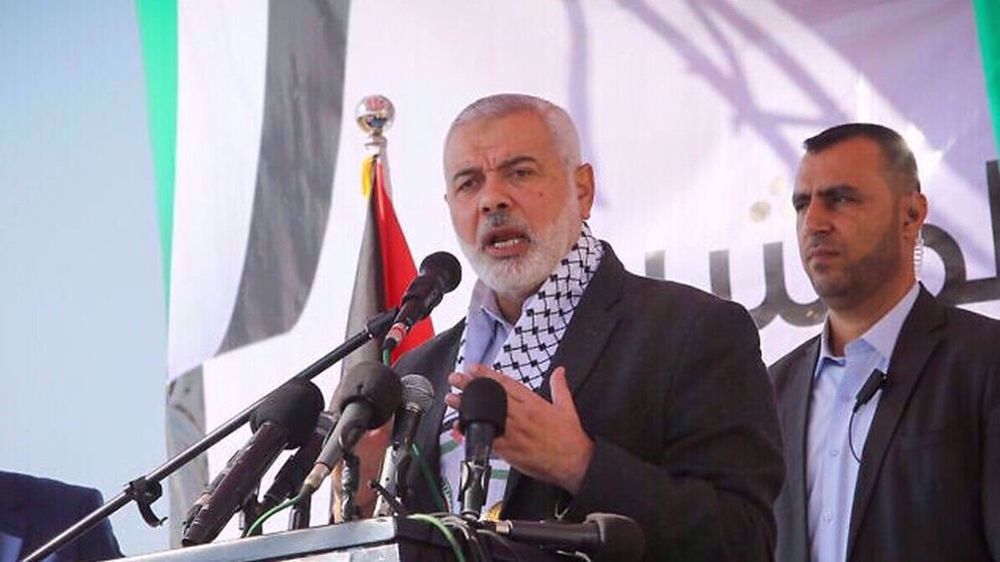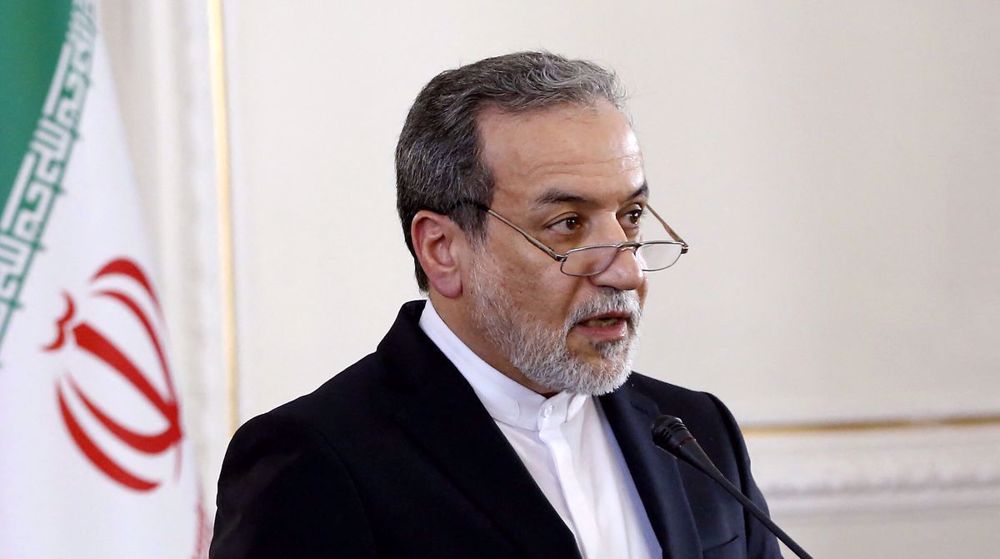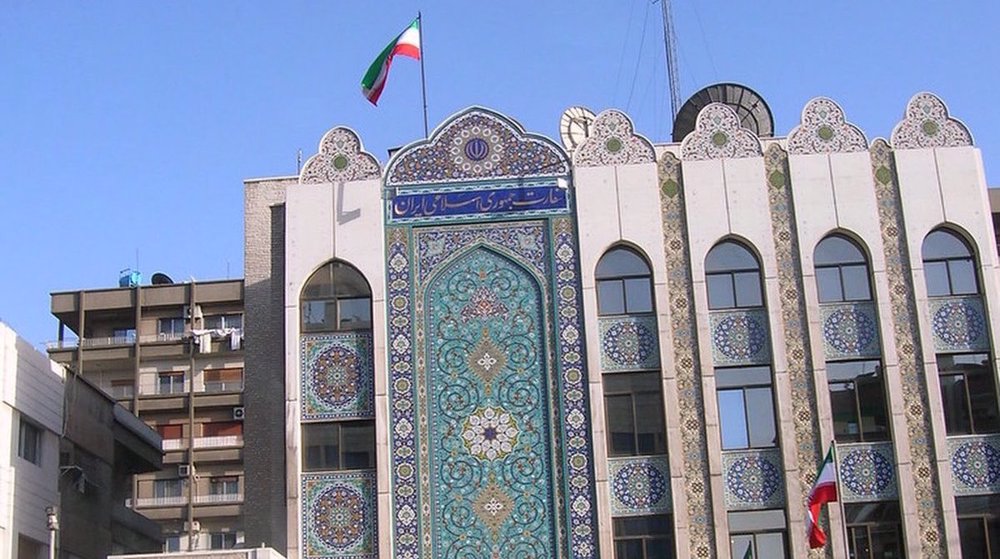EU voices support for Iranian nuclear deal amid US threats
European powers have reaffirmed their determination to preserve Iran’s nuclear agreement against the backdrop of US efforts to undermine the landmark multinational deal.
After a Thursday meeting with Iranian Foreign Minister Mohammad Javad Zarif in Brussels, the EU’s foreign policy chief, Federica Mogherini, and the top diplomats from Germany, France and Britain, took turns to deliver a statement in defense of the 2015 nuclear agreement.
“The focus of Today’s meeting was on the ongoing work to ensure full and continued implementation of the Joint Comprehensive Plan of Action (JCPOA), the nuclear deal with Iran, by all parties,” Mogherini said.
“The deal is working; it is delivering on its main goal which is keeping the Iranian nuclear program in check and under close surveillance,” she said, highlighting nine reports by the International Atomic Energy Agency (IAEA) confirming Iran’s compliance with the deal.

“At a time of acute nuclear threats, the European Union is determined to preserve the JCPOA as a key element of the international non-proliferation architecture. The European Union remains committed to support the full and effective implementation of the agreement, including to make sure that the lifting of the nuclear-related sanctions has a positive impact on trade and economic relations with Iran, including benefits for the Iranian people.”
Mogherini also expressed the EU’s concern over Iran’s conventional missile program and increasing tensions in the Middle East, but noted that such issues are outside the scope of the nuclear agreement.
In a post on his Twitter account, Zarif said there was "strong consensus" in Brussels about Iran's full commitment to its side of the bargain, but further adherence was conditional to Washington's compliance with the JCPOA.
Strong consensus in Brussels today: 1)Iran is complying with #JCPOA, 2)Iranian people have every right to all its dividends, 3)any move that undermines JCPOA is unacceptable. E3 and EU fully aware that Iran’s continued compliance conditioned on full compliance by the US. pic.twitter.com/vpib5DQT18
— Javad Zarif (@JZarif) January 11, 2018
British Foreign Secretary Boris Johnson also hailed the nuclear agreement and stressed that so far no one had put forward a better alternative to the accord.
"We greatly value the JCPOA, the nuclear deal with Iran, we think it is a considerable diplomatic accomplishment," he said.
"Iran is in compliance with this agreement according to the International Atomic Energy Agency," Johnson stated.
Additionally, German Foreign Minister Sigmar Gabriel expressed Europe's resolve to protect the deal "against every possible undermining decision."
France’s top diplomat Jean-Yves Le Drian also noted, “The accord is essential and there is no alternative."
The meeting comes as US President Donald Trump faces several deadlines to decide whether to extend sanctions relief for Iran as part of the nuclear agreement.
Before flying to Brussels, Zarif met with his Russian counterpart, Sergei Lavrov, in Moscow on Wednesday, lauding Russia’s role in the conclusion and implementation of the JCPOA.
Zarif said Iran, Russia and other parties to the deal needed to closely coordinate efforts to make sure that the implementation of the accord was seriously pursued.
The Iranian foreign minister said the IAEA had verified Iran’s commitment to the deal on numerous occasions, but a certain party to the JCPOA had failed to fulfill its commitments under the deal, an apparent reference to the US.
“Unfortunately, one of the parties to the JCPOA has not only failed to fully live up to its commitments, but it has also pursued destructive policies in this regard,” Zarif said.
The US president delivered an anti-Iran speech on October 13, in which he refused to certify that Iran was complying with the terms of the JCPOA, reached under his predecessor, Barack Obama, and warned that he might ultimately terminate the agreement.
During his speech at the UN General Assembly on September 19, Trump described the JCPOA as “the worst and most one-sided transaction Washington has ever entered into,” a characterization he often used during his presidential campaign.
Trump must decide by mid-January whether to continue waiving US sanctions on Iran under the terms of the JCPOA.
VIDEO | MEK trial in Tehran reveals heinous terrorist crimes
VIDEO | No Christmas in Gaza again
Iran condemns Israel’s brazen admission of Haniyeh murder
VIDEO | Conference in Islamabad explores Pakistan-Iran ties
Hamas condemns Israeli evacuation order of Indonesian Hospital
VIDEO | Yemen resistance remains resolute
'Easy target': Yemen warns 4th US carrier within reach
Iran military awarded $40 mln worth of vessel building contracts










 This makes it easy to access the Press TV website
This makes it easy to access the Press TV website